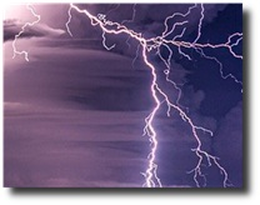Is nothing as powerful as God?
|
Everyone loves a riddle, right? Well, maybe not, but you’re going to get one anyway.
You’ve probably heard this one before. I don’t share this attempting to be clever or original, but simply to make a point. Just in case you haven’t figured it out yet, the answer is “nothing.”
|
|
Yes, nothing is greater than God. Nothing is more evil than the devil. And so on. And yes, if you eat nothing (at least for an extended period), you will die.
So why do I feature this simple riddle? To share something I think, at least in my mind, is both kind of clever and true at the same time. Here it is:
Wait! How can this be? Christians and atheists are not on the same page regarding God, so what’s going on? Maybe you already caught it.
Restating this a bit, Christians believe that there is nothing that is as powerful as God. Atheists believe that the absence of anything (i.e., “nothing”) is just as powerful as we believe God is. Why? Because atheists believe that “nothing” actually created everything! Christians believe God created everything. Therefore, Christians and atheists both believe that nothing is as powerful as God! Obviously, atheists mean something completely different than Christians when they make that statement. When it comes to the origin of the universe (and everything in it), we only have 4 options:
In this brief article, we will immediately eliminate two of the four options: 3 & 4.
I am eliminating #3 because even most secular scientists recognize the universe must have had a beginning. Unfortunately, I don’t have time to explain why. I eliminate #4 because if the universe didn’t exist, I am not actually writing this article, and you are not reading it! (Kind of a silly view, but some, not many, actually ponder this view. One has to wonder how they can be pondering something if they themselves don’t even exist.) So, we are left with just two options regarding the universe:
Created by Something
If the universe was created by something, what was that “something?” Good question. It would have to have been either itself or something outside itself. Since something cannot create itself (for obvious reasons), it would have to be something outside itself. What would that be? The universe represents all of physical reality (i.e., the natural world), so something outside itself would be considered “super” natural. Wow! Stop right there! Separation of church and state, right? Supernatural? You can’t even hint at that in our educational system. You’ll be run out of town. But if the natural world could not have been created by itself (the natural world) and could not have been created by the supernatural world, then we are left with only one other option. Created by Nothing Wait a minute. You’re not serious, are you? Yes, because the universe being eternal was ruled-out on the basis of scientific evidence. The universe creating itself was ruled-out on the basis of logic. The universe being created by something outside itself was ruled out by, by what? Well, they just don’t like that option. There’s nothing in science or logic to rule it out, other than you just decide you’re not going there. “Even if all the data point to an intelligent designer, such a hypothesis is excluded from science because it is not naturalistic.” - Dr Scott Todd (Immunologist - Kansas State University) So, we’re left with “nothing” as our “creator” of the universe. But nothing can’t do anything. That’s where you’d be wrong, at least according to some brilliant scientists.
“You have to remember, there’s a difference between nothing and absolute nothing.” - [I lost the reference for this statement.] This implies that if there truly was “absolutely nothing” in the beginning, it would never have produced anything. However, if you had “nothing,” then you could get an entire universe from that!
We need to quickly jump to the web to get some clarity on this, but I don’t mean the internet, I mean Charlotte’s Web! This is the lamb talking to Wilbur, the pig: "Pigs mean less than nothing to me." There’s more wisdom in this children’s story than in the minds of many of our world’s leading scientists!
A skeptic could also change the definition of “nothing” even further, to suit their needs. Here’s a statement from Ross Anderson quoting theoretical physicist/cosmologist/atheist, Lawrence Kraus: “Even if you accept this argument that nothing is not nothing, you have to acknowledge that nothing is being used in a philosophical sense. But I don’t really [care] about what ‘nothing’ means to philosophers; “I care about the ‘nothing’ of reality. And if the ‘nothing’ of reality is full of stuff, then I’ll go with that.” I think it makes a lot more sense to conclude “something” created the universe we live in, and that is very consistent with our every-day experiences, that “something” can actually do “something.” Whereas, nothing can do nothing but nothing because it’s nothing!
Romans 1:18-22 states that God is the Creator of the universe, and there’s so much evidence, just in nature itself, that mankind is without excuse. Many have twisted themselves into all sorts of knots in an effort to avoid this conclusion. It is certainly a heart issue and not an academic debate. Ah, Lord God! Behold, You have made the heavens and the earth by Your great power and outstretched arm. There is nothing too hard for You (Jeremiah 32:17 NKJV). If you have any questions about this or any other issue, please don’t hesitate to contact us!
To print a copy, view PDF file. |


